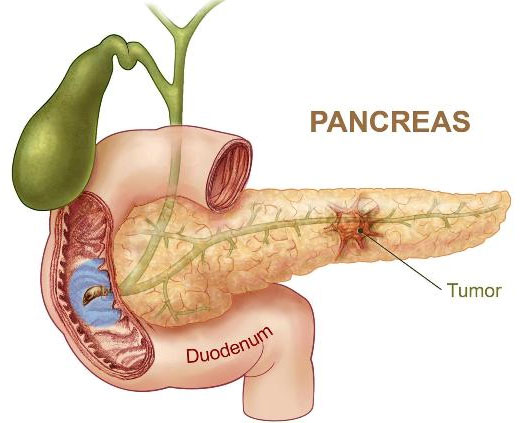Food poisoning bacteria help treat pancreatic cancer
For the first time the method of using Listeria bacteria, the type of bacteria that causes food poisoning, to kill pancreatic cancer cells has been successfully tested on animals, opening new hopes in cashew work. cancer treatment in humans.
This is the result of a study by a group of scientists from Albert Einstein College published in the publication of the Proceedings of the National Academies of Science on April 22.
Scientist Claudia Gravekamp, an expert on microbiology and immunity of Albert Einstein College of Medicine at Yeshiva University in New York, USA and a research author, said her research team has carried out Listeria bacteria are weak on mice with pancreatic cancer.

These bacteria are attached to radioactive isotopes often used in cancer treatment.
The experiment showed that these radioactive bacteria were introduced into mice to affect cancer cells but did not affect normal cells.
After 3 weeks of treatment with this method, cancer cells stopped metastasizing in 90% of mice, and side effects were not recorded. The experiment lasted 21 days, stopping after the untreated group of cancer mice began to die.
Pancreatic cancer is a form of cancer that grows very fast and is particularly dangerous, because the disease can only be detected once it has developed outside the pancreas.
Untreated patients often die within 3-6 months, the five-year survival rate is only 4%.
More research is needed to ensure that this method can be applied to human treatment as well as to consider the patient's ability to prolong life.
However, this positive result may open a new era in the treatment of pancreatic cancer metastasis.
- Decoding the gene sequence of pancreatic cancer
- 13-year-old boy found the algorithm to help treat pancreatic cancer
- New method of early diagnosis of pancreatic cancer
- Signs of risk of pancreatic cancer
- Detection of pancreatic cancer by taking selfie pictures
- The risk of food poisoning increases because the ocean is warmer
- Early detection of pancreatic cancer symptoms will help the cure rate higher
- Measures to handle when food poisoning at home
- Be careful with hot day food poisoning
- Fast food poisoning detection device
- New hope for people with pancreatic cancer
- What to eat when suffering from food poisoning
 Why is Australia the country with the highest cancer rate in the world while Vietnam ranks 100th?
Why is Australia the country with the highest cancer rate in the world while Vietnam ranks 100th? New drug causes cancer to 'starve'
New drug causes cancer to 'starve' Common cancers in men
Common cancers in men America's incredible discovery: The most feared cancer cell is love
America's incredible discovery: The most feared cancer cell is love